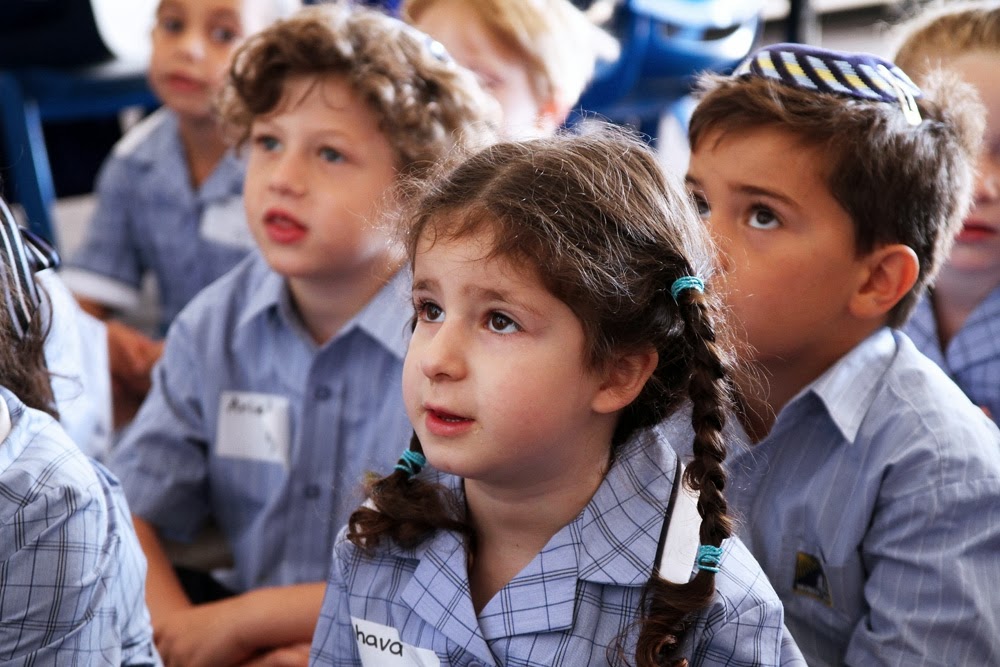Hashem still dwells among us, but the Mishkan, and the Temples are not standing.
"If we don't have them, where is Hashem's house?" I asked the girls.
"At Shul," they responded in unison.
"Is He also in our house?"
"Yes, but not in the bathroom. That is why we don't say his name there," Cohava concluded, after giving it some thought.
The house needs to be holy, a place we act with love and respect for each other and Hashem. If Hashem is giving instructions for how to construct and organize His holy home in parashat Teruma, shouldn't we work on ours too?
 First the parasha outlines items needed as optional donations for the Mishkan. Precious metals, lovely fabrics, and valuable stones among other items. I have these things. Not for donation, for my daily use, but also not organized.
First the parasha outlines items needed as optional donations for the Mishkan. Precious metals, lovely fabrics, and valuable stones among other items. I have these things. Not for donation, for my daily use, but also not organized.Here is a small sample of how my jewelry was 'organized'. The fabric (head coverings, scarves, and pashminas) were in similar disarray. I have tried various jewelry boxes and scarf racks, but nothing accommodated my collection. I needed something big.
I decided that a wooden ladder would be the ideal scarf rack and necklace holder. But where to get an inexpensive one? I was putting the little girls down for a nap and contemplating the ideal ladder, when I realized it was already there.
 Ruti and Tova have matching cribs. They are the model which converts to a toddler bed, so that transition to a "big kids bed" is less traumatic. Ruti is already in (or most of the time out of) a toddler bed. Her spare crib side was stashed behind the bed. On its side, it is a perfect re-purposed ladder.
Ruti and Tova have matching cribs. They are the model which converts to a toddler bed, so that transition to a "big kids bed" is less traumatic. Ruti is already in (or most of the time out of) a toddler bed. Her spare crib side was stashed behind the bed. On its side, it is a perfect re-purposed ladder.
I started with some jewelry, and then added all the fabric and a few handbags.
I am very proud of my project and find choosing accessories much easier with them laid out like this.
Although the girls enjoyed playing dress-up with my things while I worked, it wasn't really their project.
Looking at their possessions, I realized their 'special things' needed the most work. Clothes, toys, and books, all have places but 'special things' don't. To clarify, these 'special things' range from pebbles and rubber bands to ribbons and scraps of papers, on to the unknown. They are random items the girls (mostly Gabi) acquire, cherish, and leave everywhere all the time.
"Where was the most important item of the Mishkan kept?"
"In the Kodesh haKedoshim," Cohava replied.
"Right but inside of...?"
"The Aaron haKodesh," Gabi articulated.
We are not trying to remake the real Aron haKodesh and in no way does the girls' stuff resemble the Tablets. But special things need a special box.
 Any box would suffice, but I liked the idea of building a box, so I bought some at Ikea. That said, it was really hard for them to build, and I ended up doing it for them.
Any box would suffice, but I liked the idea of building a box, so I bought some at Ikea. That said, it was really hard for them to build, and I ended up doing it for them.
Shabbat Shalom!
















































